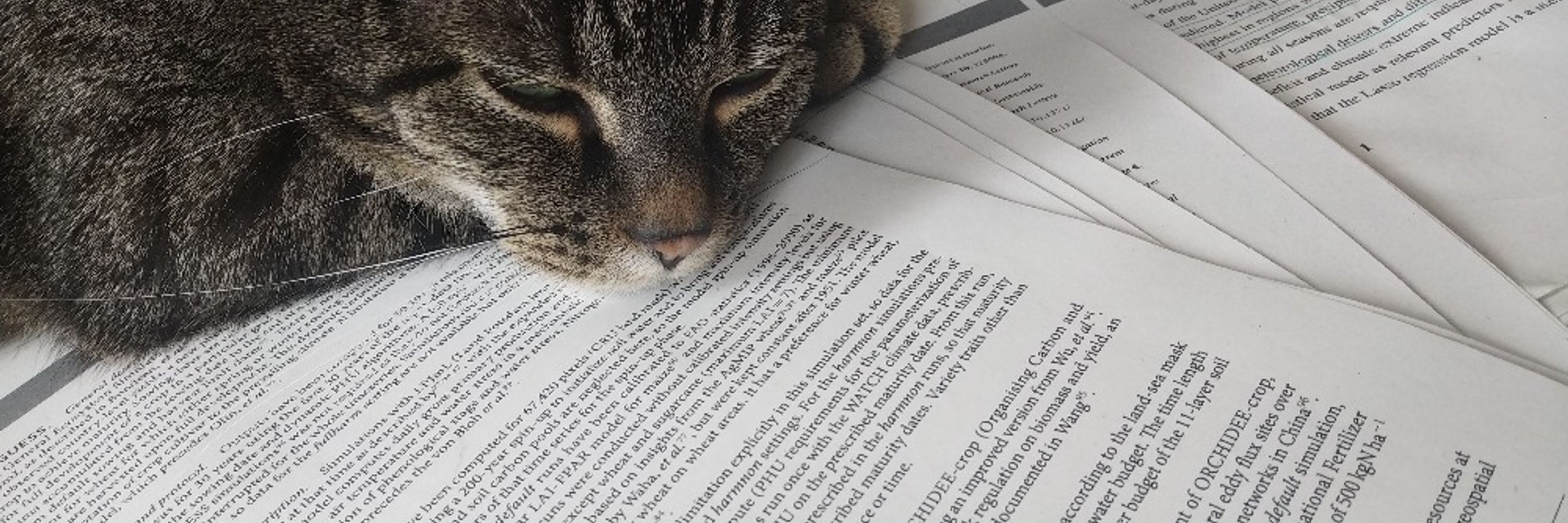
We're halfway through our Kaggle competition runtime, with 148 submissions so far! Despite using the same training data (1980-2020), submitted data-driven yield projections vary widely (median and interquartile range plotted). Try it for yourself: www.kaggle.com/competitions...
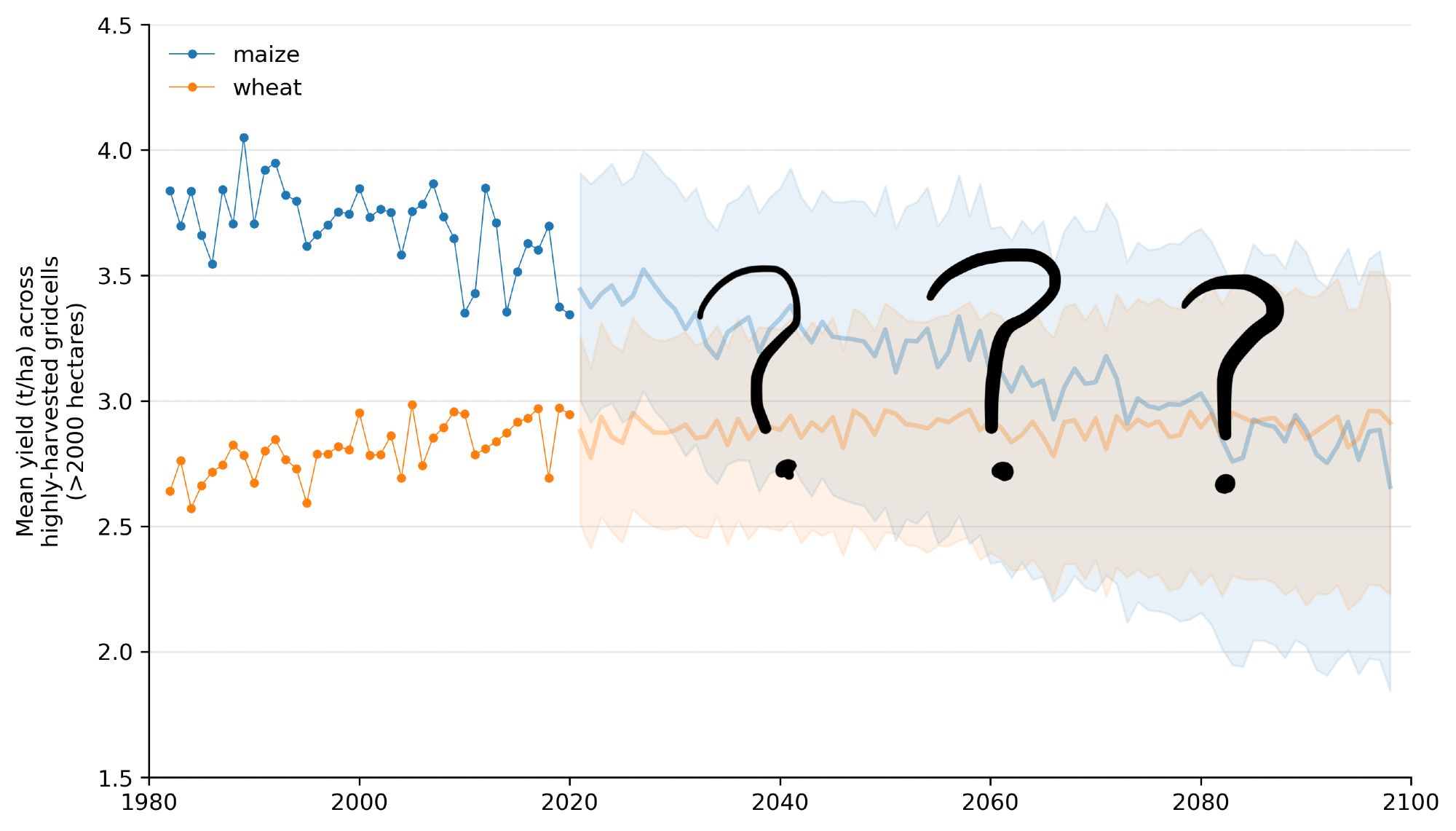
For wheat, the median estimate is zero productivity change, but some models predict large positive increases and a couple expect enormous drops. Luckily, as this experiment is based on simulated data, we have ground truth to compare to at the end of the competition. Join the competition now!
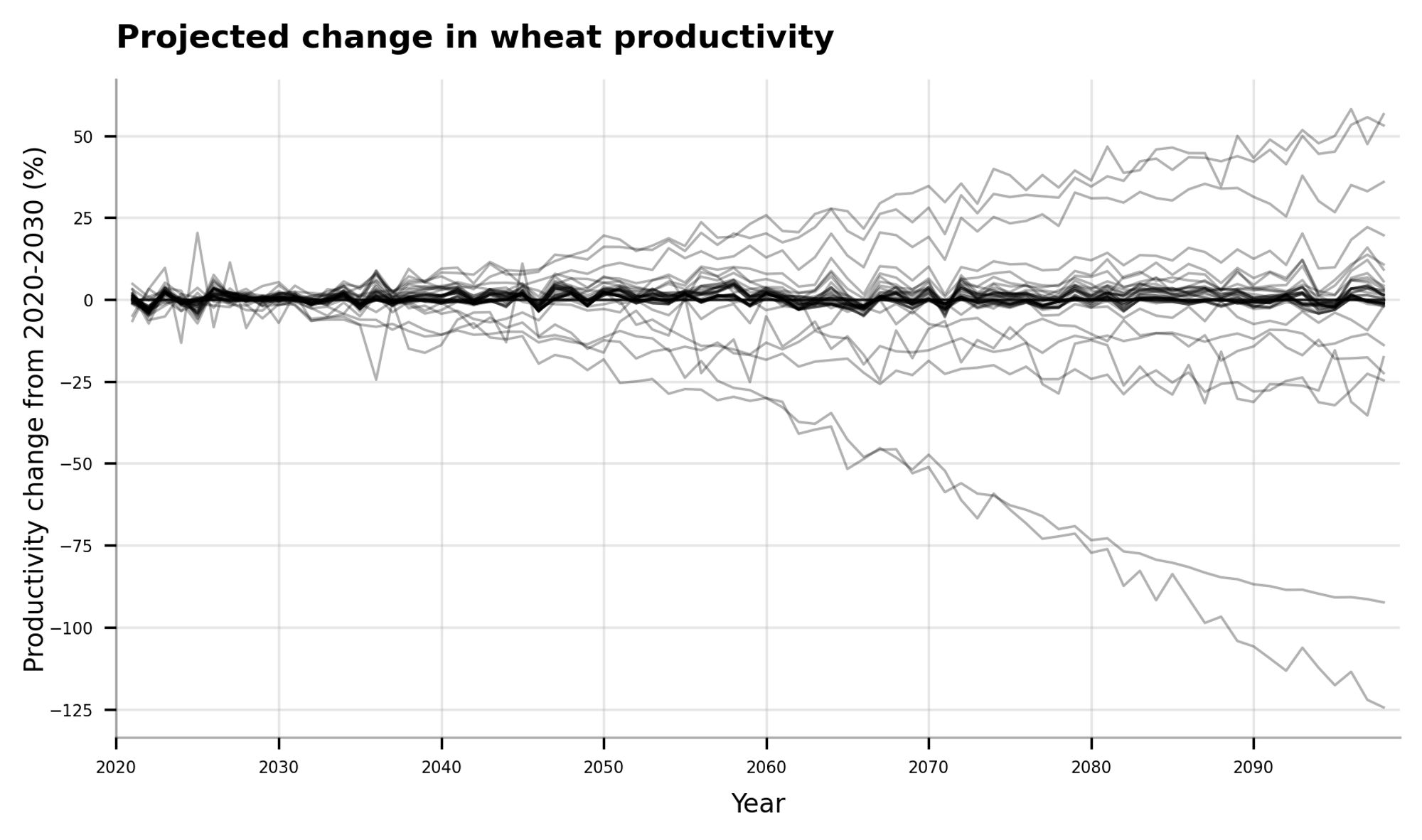
Can you learn from the past to predict future climate impacts? Our Kaggle competition has been running for 3 weeks, with 45 submissions so far. Despite using the same training data, models vary in their projected changes in global maize productivity... www.kaggle.com/competitions...
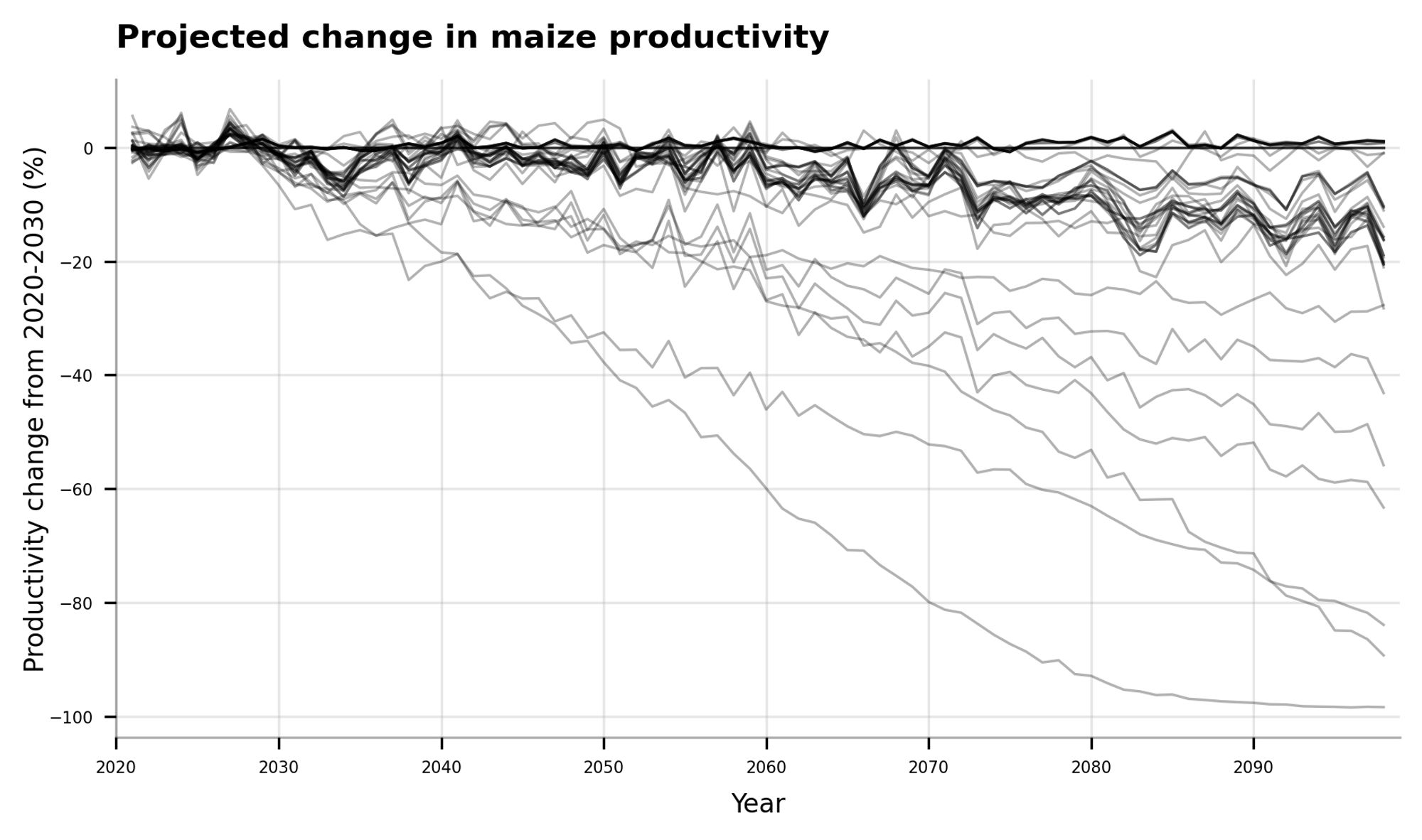
I've added a public notebook that trains a simple tree-based model and submits predictions to our Kaggle competition, to make it even easier to participate - just make a copy of the notebook and play around! www.kaggle.com/competitions...
Sounds easy? In a practice run, using a different crop model, here's how six different ML models predicted the global annual maize prediction (black line shows the true value). Which models do you think each line corresponds to? We were surprised by the results!
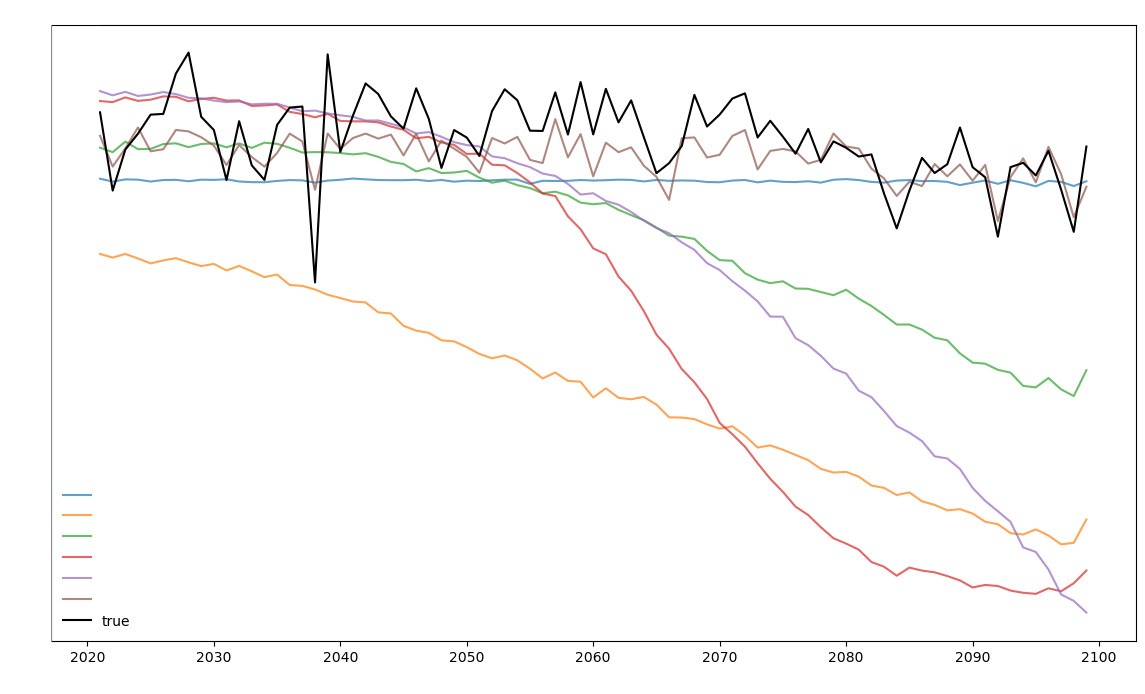
Your mission is to predict (simulated!) end-of-season wheat and maize yields using the daily weather experienced during the growing season. The challenge is that you must predict yields in the future (2021 to 2100) but will only receive training data from the last few decades...
Can we learn from the recent past to predict future climate change impacts using machine learning? We have created a new benchmark dataset designed to help answer this question, and you can take part in the challenge: www.kaggle.com/competitions...
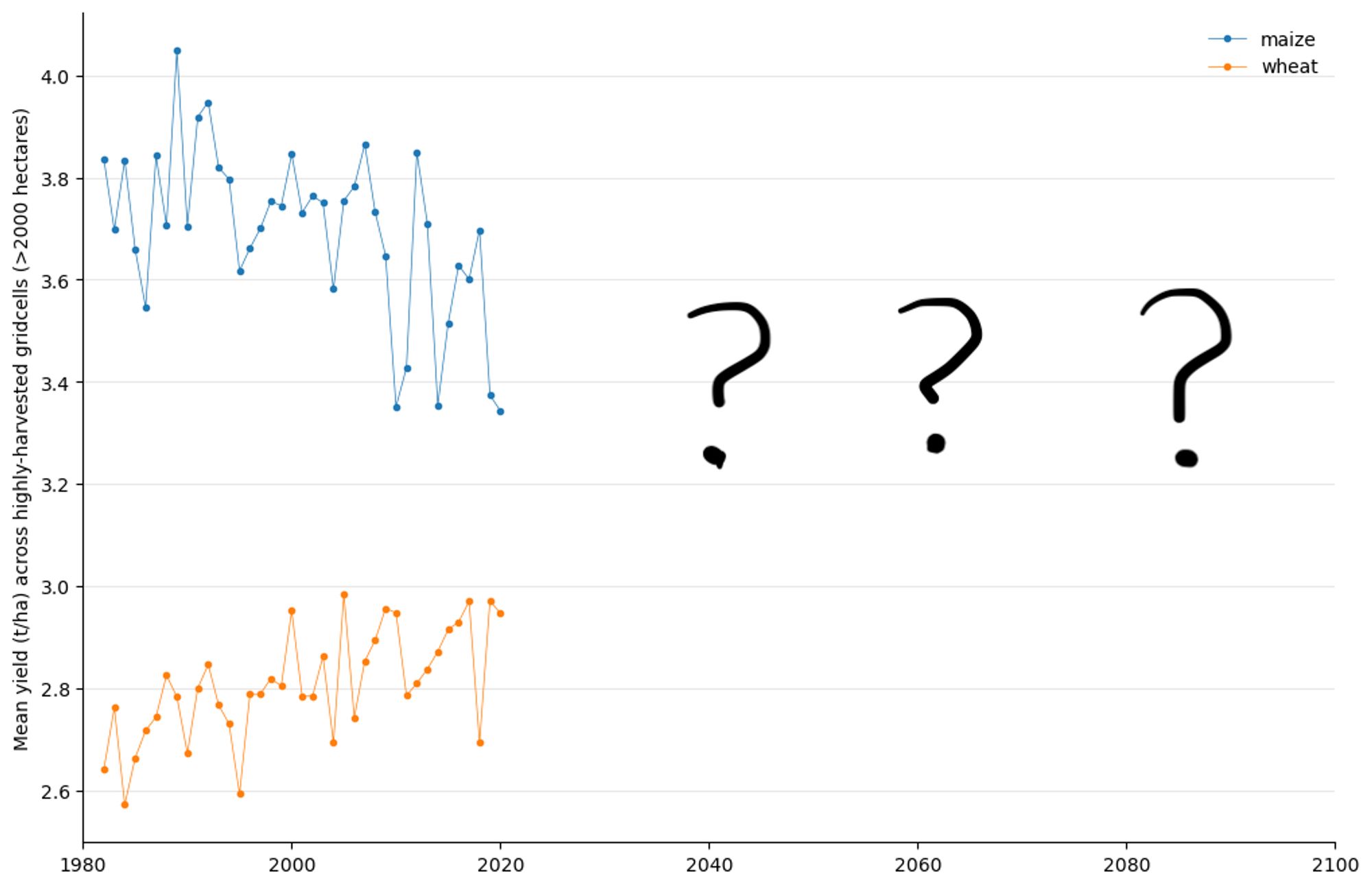
A preprint I’ve been working on together with Olivier Pasche, Zhongwei Zhang, @zscheischlerjak.bsky.socialarxiv.org/abs/2404.17652. We compared ML-based weather models and ECMWF’s HRES in case studies on 3 recent high-impact extreme events! Summary & a few thoughts 🧵👇
Two webinars to check out: 1) Avantika Gori presenting her work on compound tropical-cyclone hazards – www.youtube.com/watch?v=0mUb...www.youtube.com/watch?v=fUWh...
